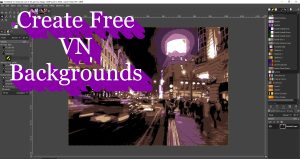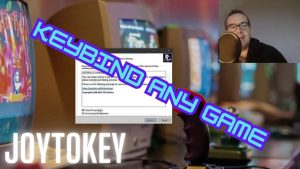Writing characters to seem real is essentially the sport of writing in a nutshell. Yet whether you are writing a book, engaging in some tabletop roleplaying, or creating a homunculus in your basement, there are some strategies. In fact, the title of this article was inspired by a very famous author I saw on television talking about how little time he spent developing story parts that it all actually sounded kind of–well–easy.
The irony of character creation is most people have built into them everything needed to assess the realness of others in the real world. But what you might have in practical people skills, gets filtered into unbalanced gray areas, in the field or on the page. At times, you might find yourself with a slew of important characters without consistency. Or, perhaps, you’ve mastered this skill. In either case, the aim of this article is to help you apply what you already know with “a character profile.” Today, I’ll give you the tools you need to make a unique character, in motion if you like!
Let’s go.
Writing Characters: Maybe Not or Archetypes
For the record, a character doesn’t have to be terribly complex if their purpose in the story is believable. Many stories revolve more around the plot than the characters, and honestly, that’s okay too.
If you’re interested in resounding character types that can tell a story for generations, let me encourage you to learn about what I have come to learn is the nature of archetypes. To me, Archetypes are the primal profile energies that live in myth. I don’t mind recommending a great book by Neil Gaiman called American Gods. Gaiman uses a neat technique to explore the characters of ancient deities, and a few new ones, in the context of modern American road culture. Alternatively, a quick session on Wikipedia can tell you all about archetypes, but the only thing I want to encourage here is to ask for your characters: what does the emotional outline of these characters look like when placed into a familiar powerful role model? They don’t have to be supernatural or benevolent, but they should be familiar if you want to harp on the powerful narrative vibe. I just feel like every time I have done this, things just connect automatically.

Writing Characters: Questionnaires and Lists
So, you’ve probably seen character sheets somewhere if you’re a writer. They’re useful in writing down adjectives and backgrounds for your characters. These are brilliant at creating a reference so that your character can seem consistent. But here’s a somewhat unorthodox suggestion, I think the ideal character profile comes from one of my favorite resources: questionnaires and lists. One very popular source of character lists you might be more familiar with is Dungeons and Dragons, the famous roleplaying game.
As a matter of fact, you can find D&D character sheets right on their website that have blank fields for all sorts of things, name, race, gender, class, etc. There are a lot of tabletop RPG character sheets floating around anywhere on Google, but here’s a link to the Wizards of the Coast page with them here: https://dnd.wizards.com/charactersheets
For some thorough resources, however, here are some more fleshed-out, character-building lists that are similar to helpful resources I have found in the past for my own work. I love that Google opens up all sorts of resources like his for curious writers.
Some useful character profile templates:
- https://authority.pub/character-development-questions/
- https://www.creative-writing-now.com/writing-character-profiles.html
- https://dramatics.org/99-questions-to-ask-your-character/
Example of a Character Profile
Name: Dave Pizza
Location: Pizza Command Center
Job: Pizza and Pizza Accessories
Interests: Writing, blogging, books, games
Most annoying trait: Easily entertained, slow to draw.
Clothing: T-shirt and jeans/pajama pants.
Does Mr. Dave Pizza like orange soda: I do, I do, I do-oo!
How many presidents does it take to screw in a shark bulb: [INFO MISSING]
Food: C’mon, seriously…? Put it on the pizza!
You can just go on and on with this silliness, or you can use a structured list. It’s really quite easy, to be honest with you, and one of the most motivating reasons to tell the tale of a person you just made up!
Helpful Rambling
When I spent time as a bookseller a while ago, I had some very nice co-workers. We would all share books and stories and all sorts of great stuff. Somewhere, somehow I came across this thick black fabric cover journal tome that moved between like 4 apartments before I used it. It ended up being a nice canvas to gush writing ideas into.
Have you ever noticed how character dialogue seems to ricochet off each previous character’s bit? It’s a nice technique called foreshadowing, but it’s an illusion. Not in actually captured moments, but often, in drama. I feel it’s a reliable technique to deal with the reality that actual conversations are sometimes lumbering yet also genuine, even sacred, maybe. Not as a certainty though, I’ve had quite interesting conversations in real life throughout life.
Through the Laughing Glass
But on the subject of characters, you could replicate the same scenarios by writing a sentence, and then below it writing the same sentence with synonyms and mirrored context. Doing this could, hopefully, give you somewhere to start.
Which is a nice way to create a character profile.
- Hi, I’m a person, from outer space.
- Greetings, I’m a humanoid, from Zeta-Reticuli.
- “Zigga-Zigga-999, Zigga-Zigga-9999,” ~The Rockets.
- I’m William S. Burroughs, and I’m invading Andy Warhol’s brain.
OR something. Character profile, dialogue, federations, mega-corps, what have you. Anyway, experiment, and get some stuff on paper. Read books. Watch movies. Learn. Or don’t. Experiment. This is your story, and you can take as long as you want to prepare for it by knowing more about your characters. Generally, the more you focus on the most important parts, the sooner you can craft your story and see where things go.
One other unorthodox technique I didn’t go into is using divination to make characters. Not literally divination, but things like Tarot or astrology can actually be very effective at helping you produce concepts if you are familiar with them. As you might know, tarot uses that concept I mentioned above quite literally through archetype cards. The fool, the lovers, etc. You don’t really even have to know anything about tarot to make this work. Try taking a deck of playing cards lying around and meditating on what randomly drawn cards make you think of. This is slightly more helpful for wandering minds.
Use ANYTHING That Works
These are a few quick suggestions that I’ve used over the years with some unconventional ideas for your use. Really though, just write what works for the story. Not everybody needs an extensive background for their characters. There’s a lot to be said about minimalism in fiction. Either way, I hope these tips help you out. I find the most inspiration of all from other writers, so keep exploring. You can read books, watch films, or talk with friends–whatever makes you get those clever ideas you’re driven to tell!
Thanks for reading Mr. Dave Pizza. Please have a look around and do come back! If you’d like, leave a comment below about your own techniques, please do. Until next time.




